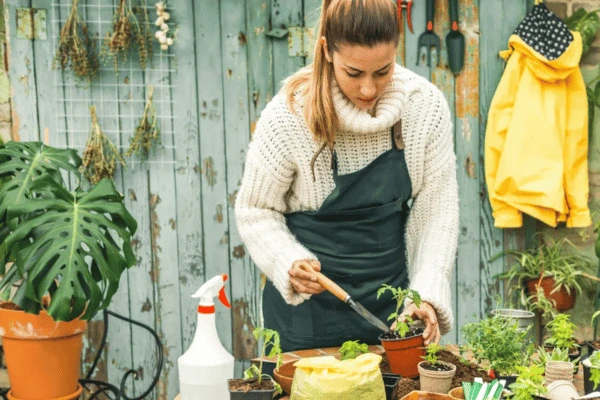Next time you step into a garden — or even glance casually at a roadside patch of green — pause and observe. Plants, like people, reveal stories through their postures, preferences, and patterns. We behave so much like them, don’t we?
The Space-Claimers
“I-me-mine” personalities in full bloom
Some species of plants claim their space with full-bodied confidence. They grow wide, tall, and deep — asserting themselves both overground and underground. Their roots spread with intention, their branches dominate the sky. If they were people, we might call them the “influential” ones — well-connected, powerful, patriarchal, carrying the weight of I-me-mine. You’ll find them in boardrooms, headlines, and family gatherings — taking up space as if it were their birthright.
The Parasites
Clinging to others for identity and survival
And then, there are the parasites — those that can’t survive without a host. Take away the tree they cling to, and they collapse. Their identity, purpose, even sense of direction, dissolves without external support. In human form, they show up as sycophants — forever attaching themselves to someone else’s shadow, desperate for belonging, direction, or a lifeline.
The Pipe-Huggers
Thriving in dysfunction, appearing at “just the right time”
Look up at the side of an old apartment building, and you might spot a very specific kind of plant growing near the plumbing pipes. Only that plant grows there. It’s as if the environment sends out a signal, and the right participant shows up. It reminds me of those moments when your car breaks down and, miraculously, a fixer appears within minutes — often uninvited, but uncannily available. These are the ones who appear at the precise place and time where something is broken, thriving on dysfunction — like the plant that grows where only water leaks.
The Independent Stalwarts
Quiet, strong, self-sufficient souls
Now, observe the truly independent plants — the ones that don’t need much from you. No watering, no pruning, no praise. They grow anyway. Upright. Self-contained. Their presence says, I’m here, and I’m enough. In human terms, these are the dignified souls, quiet yet firm, unshaken by opinion, rooted in self-worth. Shoulders back, chin up. Rare, but unmistakable.
The Climbers
Ambitious, adaptive, and quick to scale
Then we have the climbers — ambitious, clever, always scanning for the next thing to latch onto. They know how to pitch, where to grip, and how to scale heights using whatever scaffolding is available. Opportunists? Perhaps. Survivors? Definitely.
The Creepers
Ground-huggers with gossip in their tendrils
In contrast, creepers stay close to the ground. They stretch horizontally, intertwining with whatever lies in their path. There’s a touch of gossip in them, a need to be in touch with everything, often meddling — over-involved, listening in on stories not meant for them. You’ll meet their human versions at every social gathering, ears perked, always “in the loop”.
The Sacred Basil
Discerning, devotional, and quietly divine
And then… the basil. The sacred tulsi. Unlike others, it refuses to grow just anywhere. It demands reverence. It thrives only when cared for with devotion. You can’t ignore it, and you can’t fake your respect either. It’s a plant of ritual, of presence, of quiet divinity. In the human world, these are the benevolent yet discerning ones — the spiritual anchors, the wise elders, the ‘high-maintenance’ souls who require sacred attention, but offer deep blessings in return.
Just as plants reflect the diversity of life, so do we. In gardens and in gatherings, on trellises and timelines — we’re all growing, adapting, and finding our place.
So the next time you pass a plant, don’t just look at it — see it.
It might be holding up a mirror to someone you know.
Or maybe… to you.
Do you know if your garden is giving off good vibes? Get a home energy makeover done for your home. Click here to know more.
🌱

